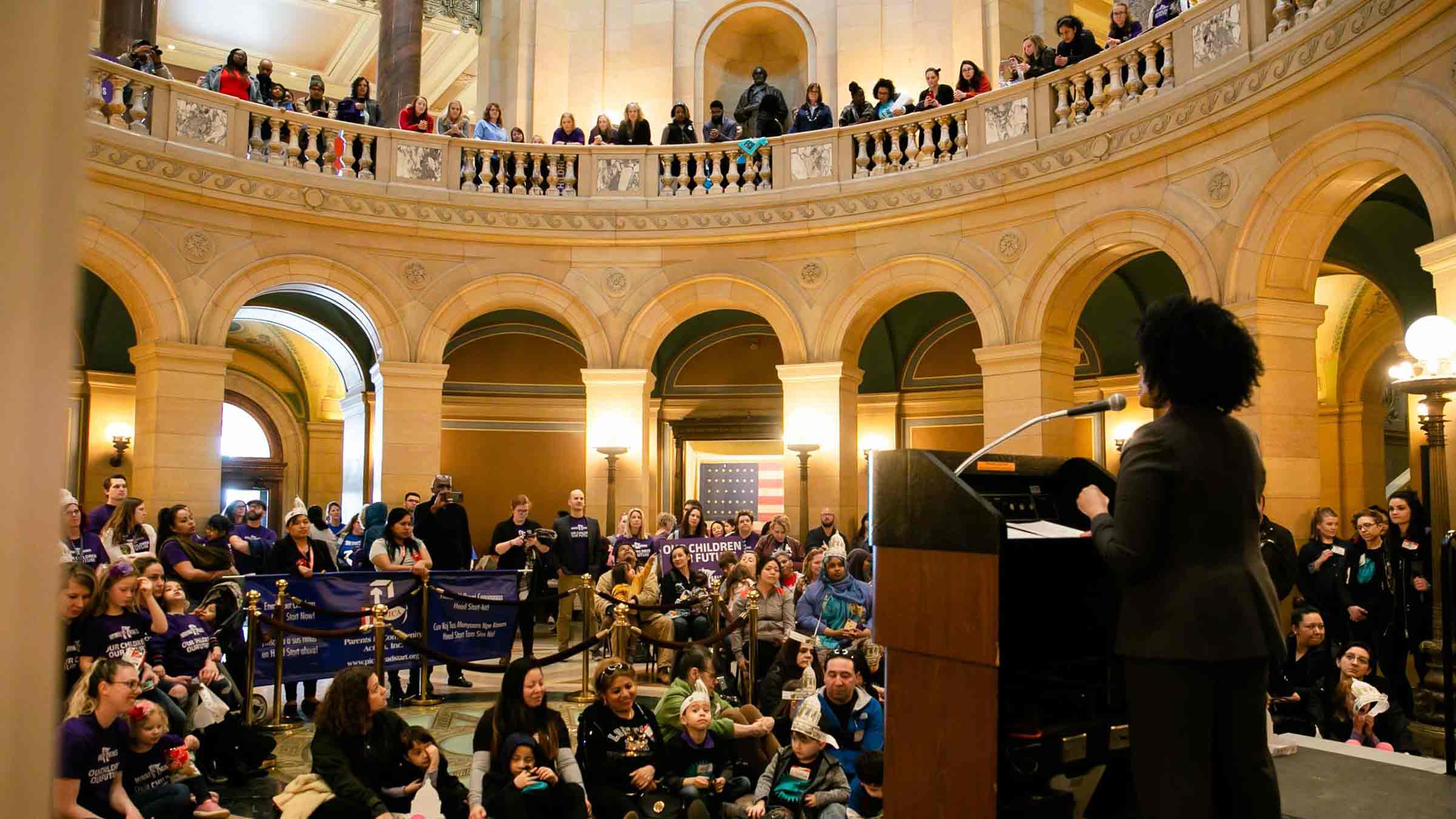
Greater Twin Cities United Way’s Community Connection Series brings together nonprofit partners, donors and stakeholders to share learnings and new ideas and discuss topics that are critical to helping our community thrive.
Time flies when the Minnesota legislative session is in full swing. Between meetings with legislators and partners, attending and testifying at committee hearings, and staying on top of new legislative developments, there are few moments to pause and fully reflect on session progress.
The regular 2021 legislative session ended May 17, and as leaders and working groups continue to hammer out policy details and work toward a final budget for approval during a mid-June Special Session, this interim time offers a rare moment to stop and assess the progress we’ve made regarding our policy priorities – and to reaffirm the need for change during the next few weeks.
During our recent Community Connections Series event, United Ways of Minnesota’s Executive Director Doris Pagelkopf, Employment and Independent Housing Manager for Ujamaa Place Stevenson Morgan, and Greater Twin Cities United Way’s Advocacy and Policy Intern Adar Makhtal took an important and informative look back at the 2021 regular legislative session.
Fueling lasting change through advocacy requires educating government leaders and lawmakers about the systems that need improvement, and then working with them to co-develop solutions. A key example from this session has been United Way’s work to build greater nonprofit sector stability through a Nonprofit Resiliency and Recovery Fund.
Doris Pagelkopf, who leads the United Ways of Minnesota statewide network, stressed the immense need for this fund, highlighting how nonprofits – which employ 14 percent of the state’s workforce – have been operating on the frontlines of the pandemic, serving Minnesota’s most vulnerable populations. For more than a year, community needs have skyrocketed, and nonprofits have answered the call – but their resources are dramatically declining.
The Nonprofit Resiliency and Recovery Fund would provide five rounds of funding totaling $50 million for culturally specific, small- to mid-sized nonprofits. Learn more about the need for this funding in this recent Star Tribune article.
Another urgent need is increased access to safe, stable housing. Stevenson Morgan of Ujamaa Place, a United Way nonprofit partner that provides holistic transformation for young African American men experiencing inequities at the intersection of race and poverty, shared the many systemic challenges facing their clients – and how stable housing is a critical component to breaking those cycles.
That is why one of United Way’s 2021 policy and advocacy goals is to promote, maintain and establish stable housing by supporting the prevention of homelessness. Legislatively, this means ensuring that a fair and reasonable transition away from the existing eviction moratorium is implemented once the peacetime emergency ends. Requiring landlords to send a formal pre-eviction notice to tenants 14 days prior to the official filing of an eviction – Minnesota and West Virginia are the only two states in the nation that do not require this – as well as expanding eligibility for future eviction expungements is equally as critical.
Our conversation wrapped up with United Way Advocacy and Policy intern Adar Makhtal reflecting on her time at United Way over the spring semester. Adar exemplifies the incredible potential for students to represent our communities as future advocates and leaders.
As state leaders work toward a final budget deal and begin making decisions on comprehensive eviction reform along with the use of federal funds, it is our hope they keep these conversations front of mind.
Thank you to the many community members and partners who amplified their voices for change this session – doing so will help in creating a more positive and equitable system for everyone.